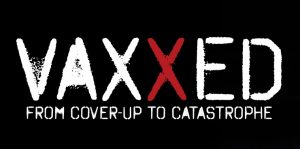A UK parliamentary committee has published a preliminary report highlighting what it describes as ‘significant concerns’ over the risks to ‘shared values and the integrity of our democratic institutions’. It calls for ‘urgent action’ from government and regulatory bodies to ‘build resilience against misinformation and disinformation into our democratic system’: “People are increasingly finding out about what is happening in this country, in their local communities, and across the wider world, through social media, rather than through more traditional forms of communication, such as television, print media, or the radio. Social media has become hugely influential in our lives. Research by the Reuters Institute for the Study of Journalism has shown that not only are huge numbers of people accessing news and information worldwide through Facebook, in particular, but also through social messaging software such as WhatsApp. When such media are used to spread rumours and ‘fake news’, the consequences can be devastating.”
Keywords: fake news
Antivaxx fake news: ‘dead’ child is alive

Warning: anti-vaccination groups all over the world are trying to push a fake news story (using #Icantforget) about a kid that supposedly died from SIDS (also known as cot death). However, the kid in the photo is alive and well, and vaccinated. The antivaxxers didn’t even have permission to use the photo; it was stolen from a photoshoot series of the son of Australian photographer Brayden Howdie.
Read the full story in Le Monde (French).
British study to ‘immunise’ against fake news
![]() Scientists from the University of Cambridge, led by Dutch social psychologist Dr Sander van der Linden, are developing a method to ‘vaccinate’ news readers against misinformation.
Scientists from the University of Cambridge, led by Dutch social psychologist Dr Sander van der Linden, are developing a method to ‘vaccinate’ news readers against misinformation.
Their research, using climate change denial as an example, shows that it works well to briefly mention that there is criticism against the consensus on the subject, but provide an easy-to-refute example of this. When someone will later come across similar criticism in a fake news story, they will be prone to reject it. However, if conspiracy theories are given too much attention, and treated with a more detailed debunk, this has an adverse effect on the readers, who will more likely believe the next hoax article that they are presented with.
The key is finding the right dosage that helps people protect themselves against nonsense.
More information in English – Meer informatie in het Nederlands
Why fact-checking news reports is important
Viralgranskaren (‘The Viral Monitor’) is a standing column of the Swedish branch of the international freesheet newspaper Metro (that is also originally from Sweden). They specialise in finding out whether viral videos and stories are actually true, and encourage people to fact-check before sharing something on social media.
On 18 November 2016, they created both a Swedish and an English version of a video explaining why fact-checking news reports is important.
The example they give is of a story that went viral in late October 2016. It was based on a real news article from Sveriges Television (SVT). However, xenophobic conspiracy right-wing websites, blogs, shock-logs etc., especially outside Sweden (e.g. Infowars), seized upon the article – that didn’t even mention Islam, Muslims or refugees – to claim that decorative Christmas lights were ‘banned to avoid offending Muslim migrants’. (more…)
